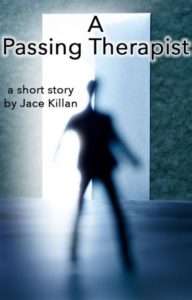It was my turn. I passed out my thirty pages to the group to take home and love. I knew they would. They’d come back the next week and beg for more. The prose. The story. The insight. They’d share with their friends. The leader of the crit group (a group I paid $200 a month to be a part of) had been published—four times. She’d probably kick my submission over to her agent. I’d have publishers beating down my door, demanding I quit my day job and finish the book.
The next week I waited nervously as we went through the opening formalities. Then they pulled out their redlined thirty pages and looked at me. Not with eyes of amazement or envy, but…pity? Confusion?
“Well,” said the four-time published author, “where do I start?”
I learned a lot in the next twenty minutes. It was like prancing around the high school cafeteria, butt naked.
They wanted to know what happened to the peanuts. See, my character went on a road trip with his dad. He stopped in the gas station and bought peanuts. I never mentioned them again. They wanted to know what happened. The group leader suggested if I put it on the table, that I use it.
I sucked at POV. I hadn’t written a story but wrote about the scenes I would have watched on television, shifting camera angles back and forth. Good for television, bad for storytelling. This was the first time I learned about the concept known as Point of View.
“But beautiful imagery in the fire scene.” That coming from the four-time published author. I didn’t know what imagery was. But I had written something that I had experienced, building a campfire.
After the experience, my pride more than bruised, more like destroyed, and surprisingly with no agent deals, I about gave up writing.
Fast forward 10 years. Tonight, I just got off the phone with a phenomenal crit group. We submit1000 words each week and critique them. We probably overanalyze things, discuss word variations, plot structure, character development. The benefit of this group, hasn’t been the critiques, the multiple eyes and perceptions that catch inconsistencies or typos (like mine tonight where I wrote “her waste” instead of “her waist”).
No the greatest gift of this crit group has not been so apparent. In reading other writings as a fellow critiquer, I have to ask myself a number of questions: Why does this work or not work? Why did I misread this? What do they mean here? Why did they take it that direction? Why did they use that word? How might I have said that? Why do I love this character? Why do I enjoy this character? What made that piece great? And on and on and on.
Then, while asking the questions, developing a response that is constructive and then sharing that response with the author has helped me better understand my own writing weaknesses.
Robert Heinlein said, “When one teaches, two learn.” This my friends, is why you need a crit group. Because when all six of us teach, all six of us learn and we are getting better, I am getting better.
Here are some things crit groups have taught me.
- How you mention something in a story can add great significance to that something…like peanuts.
- If you put something on the table, use it.
- Good writers are not born. Everyone sucks as some stage in their writing career. If you want to be a good writer, persistence will help.
- DON’T PAY FOR CRIT GROUPS – even if they are a four-time published author.
- If you don’t like your crit group, find another. There are plenty. Maybe join two.
- If you’re the smartest guy in your crit group, maybe join a second (don’t necessarily quit your first because Robert Heinlein had a good point.
- Make the time to submit, attend, and offer feedback in your crit groups.
- Be consistent.
- Writing prompts, given by someone in the crit group is a waste of time. I’ve got plenty of ideas and too little time.
- Join a group that writes the same genre as you. It’s hard to get feedback on legal thrillers if everyone else is a fantasy guy.
- Be appreciative. They’re helping you and maybe you’re helping them.
- Take all feedback. If it helps, great. If not, throw it away quietly.






